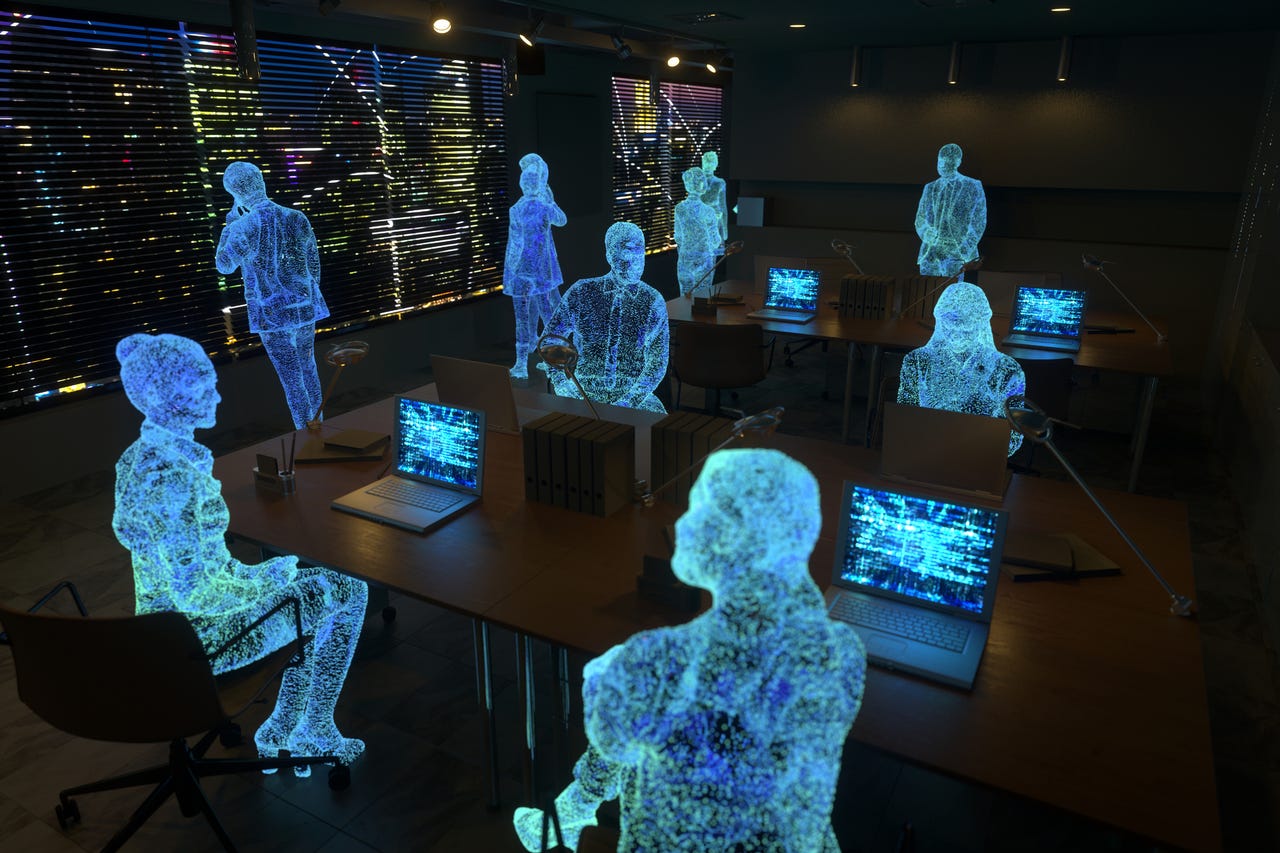
































Ask a leading industry analyst about the impact of generative AI (GenAI) on the way we work together, and they will point out that we're just beginning to discover all the ways it can reshape our tasks and interactions.
GenAI "will lead to a reinvention of work with more human-centric work processes," according to an analysis by Accenture. "GenAI is democratizing business process redesign, giving everyone -- from assembly workers to customer service agents to lab scientists -- the power to reshape their own workflows."
Also: How AI-assisted code development can make your IT job more complicated
All good, all good. But we rarely hear about the impact on the work of people either building GenAI-capable applications or working with the tools. Beyond being able to quickly generate code in selected languages, how is it changing technologists' jobs?
In the view of some industry leaders and experts, GenAI's impact doesn't seem to quite measure up to the miracles presented for business roles. "Not every developer sees an opportunity in these tools for software development," says Amrit Jassal, chief technology officer at Egnyte. "There are quite a few rough edges, especially for experienced developers."
Software development and technology work relies heavily on teamwork, handing off work across groups, and closely working with business users. That's why practices such as agile, scrum, and DevOps are so important. For these purposes, AI doesn't show a great deal of promise yet, Jassal says. "Generative AI tools are still targeted to individuals rather than teams -- within power users like DevOps or executives."
AI's collaborative effects "are very much in their infancy, and in a sense, we are sailing into uncharted waters that need to be fully explored," says Ed Macosky, chief product and technology officer at Boomi. "While AI is continuing to develop, early iterations are already making their way into developer workflows. However, despite this AI prototyping, we are still defining explicit AI policies, as there are a lot of questions around data sovereignty, security, and regulation that have yet to be concretely answered."
In addition, technology teams need to be aware of 'building dependencies on AI," Macosky adds. "Relying completely on AI runs the risk of siloed, specialized developer experience that can result in people not understanding how to do their job without AI, which in turn creates significant risk."
Also: AI will change the role of developers forever, but leaders say that's good news
Creating AI dependencies "is not inherently harmful, but we have to pinpoint the stage where it is helping move humans forward, rather than replacing areas where you'd still want humans to make critical decisions," says Macosky.
This is particularly the case with data and code that need to be top quality. "If we rely too heavily on AI without developing and inputting quality data and code, that is what poses the biggest risk," he says.
Overreliance on AI tools may be the greatest drawback, Jassal agrees. "Relying on tools such as the OpenAI Code Interpreter, which essentially regurgitates 'Stack Overflow' recipes, may decrease innovation. Proven practices such as peer programming with mentors will decrease, pushing junior developers toward social isolation. Teamwork is an essential component of any large-scale software development."
Also: AI is supercharging collaboration between developers and business users
Still, these experts and others are bullish that GenAI will have a positive, long-term impact on technologists' work. This is especially acute, since DevOps teams are feeling the pressure -- "seeing an increase in the requirement to release code at high velocity -- while ensuring minimum disruption to the existing systems," says Naveen Kamat, vice president and chief technology officer for Kyndryl.
AI can improve the collaboration it takes to make practices such as DevOps work, he continues. "AI-powered systems can also aid teams by providing a single, unified view into systems and their issues across the complex chain of DevOps. Simultaneously, the application of AI to these systems can improve the complete understanding and knowledge of anomalies detected and rectify it instantly through alerts to the right stakeholders."
In addition, Kamat adds, "AI can help with the monitoring of deployed code -- in terms of performance, user experience and feedback. This makes it possible for enterprises to enhance their customer experience and for the business executives and stakeholders within the enterprise to have a curated, consolidated view to calibrate outcomes and work closely with DevOps teams for further improvements."
Also: Beyond programming: AI spawns a new generation of job roles
Productivity also may get a boost from incorporating AI into collaborative processes. "We are seeing engineering teams incorporate their strategies more and more into overall business goals," says Macosky. "Due to AI's capabilities, prototype projects such as pilots, proof of concepts, and application testing are significantly less resource extensive, increasing team productivity. As a result, developers can bring these projects to business teams, brainstorm new organizational objectives based on these projects, and overall increase the level of mutual understanding between technical and non-technical staff."
Ultimately, the best direction for AI "is that it disappears into the background and is non-intrusive," says Jassal. "In general, the adoption of new tools is always easier when they piggyback on existing processes and tools such as Integrated Development Environments."
 Etiquetas calientes:
innovación
Etiquetas calientes:
innovación